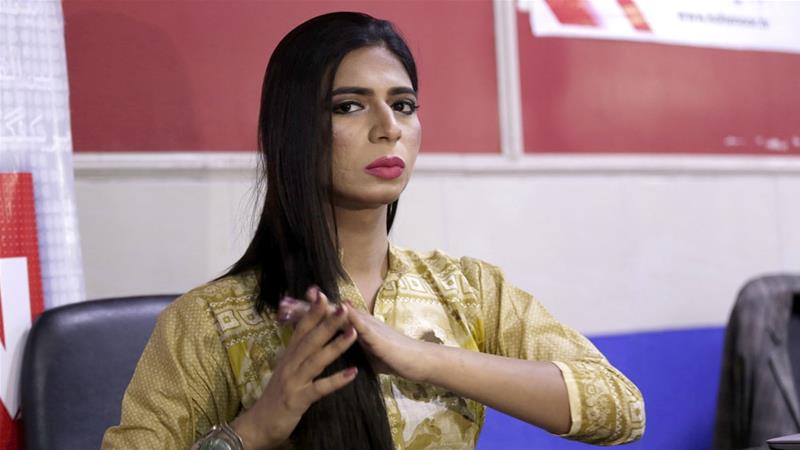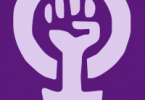Additional reporting by Manzar Abbas and Muska Safi.
Marvia Malik made international headlines this year after she became Pakistan’s first transgender news anchor.
“Across the world women and transgender people are facing challenges. It’s not only a Pakistani problem, it’s a worldwide problem,” Marvia Malik told City Journal.
“I want people to know that I am transgender, if I can reach my goal then other people can too. They also can reach their goals if they struggle for them,” she said.
Malik has become a symbol of the fight for transgender rights in Pakistan and internationally.
Kohenoor news director Bilal Ashraf, who appointed Malik in March, said he believed his decision could spark new opportunities for transgender people across Pakistan.
“I’m the first man who took this step, but I do not want to be the last one,” he said.
“I expect people to support people like Marvia in their community and to provide them shelters and with respect. It was my main aim to introduce Marvia and to give her a platform so that [transgender] people could survive.”
Transgender rights in Pakistan
University of Peshawar anthropologist, Dr Jamil Ahmad Chitrali said that stigma was the main problem for transgender people in Muslim-majority Pakistan.
“Most Pakistanis are narrow-minded, they will not accept minorities, how we can expect them to accept transgender people?” Dr Chitrali said.
“Many people believe there are only two genders, so when they see hijra or trans people they are not ready to accept them.”
Human Rights Watch’s (HRW) 2017 report on Pakistan notes that despite legislative protections in place, transgender people and activists face discrimination, intimidation and violence.
The report referenced the 2016 murder of 23-year-old transgender activist Alisha.
She was “shot eight times in Peshawar, and died in hospital while staff debated whether to put her in the male or female ward”, the HRW report said.
Despite continued ostracisation, transgender, non-binary and intersex people have been acknowledged in Pakistan far before people in the West.
The word hijra has been historically used to describe transgender, intersex, and non-binary people who live throughout Pakistan and much of South Asia.
While hijra does not match with exactly Western labels of gender and sexuality, its existence alludes to the longstanding survival of ‘third-gender’ communities in South Asia.
However, as Dr Chitrali told City Journal, hijra is sometimes used as a slur in Pakistan.
While Pakistan lags behind in its acceptance of women, the situation is dire for transgender people.
“Transgender women have to face more problems than cisgender women. People accept cisgender women but not trans women or men,” Dr Chitrali said.
Marvia’s message
Marvia Malik’s wants Pakistanis to support transgender people in their families.
“Parents have to know that their [transgender] children are talented. Do not treat them differently, treat them like normal children,” she said.
“They should accept them because acceptance of family is very important. If their family will not accept them how society will accept them?”
Kohenoor News’ news director Bilal Ashraf said his decision to hire Malik went beyond helping her as an individual.
“I want to promote and provide all people like Marvia who belong to minorities so that they can show their talent. There is not only one Marvia, it could be lots of people like Marvia. It was my moral responsibility to do something for those people who belong from any oppressed community,” he said.
Dr Chitrali told City Journal that Malik’s appointment was significant.
“It is a great step taken by Bilal Ashraf that will make a huge impact. It will help transgender people to move ahead,” he said.
Marvia Malik said education was a gateway to the survival of transgender people in Pakistan.
“My message to transgender people that if they are uneducated they should join some courses such as cooking, fashion designing, and gain diplomas which can help them in future,” Malik said.
Since Malik’s appointment, landmark legislative changes have passed in Pakistan.
Last Tuesday the Pakistani parliament passed the Transgender Persons (Protection of Rights) Act, which guarantees basic rights for transgender citizens and outlaws discrimination from employers and private business owners.
But Dr Chitrali warned that social change was the key to the survival of transgender people.
“It’s not all upon the government to accept them. There is only 10-20 percent role of government, who have to make schools’ and training centres for them. But the other 80 percent is the role of society,” he said.
Marvia Malik spoke of a brighter future for transgender people in Pakistan.
“Because of some laws which are in favour of transgender people, people’s views and behaviours are also being challenged,” she said.
“The behaviour of people is changing toward transgender people and while it will take time to change totally, it is changing gradually.”








[…] This article was originally published on City Journal. […]
[…] Originally published on The City Journal […]